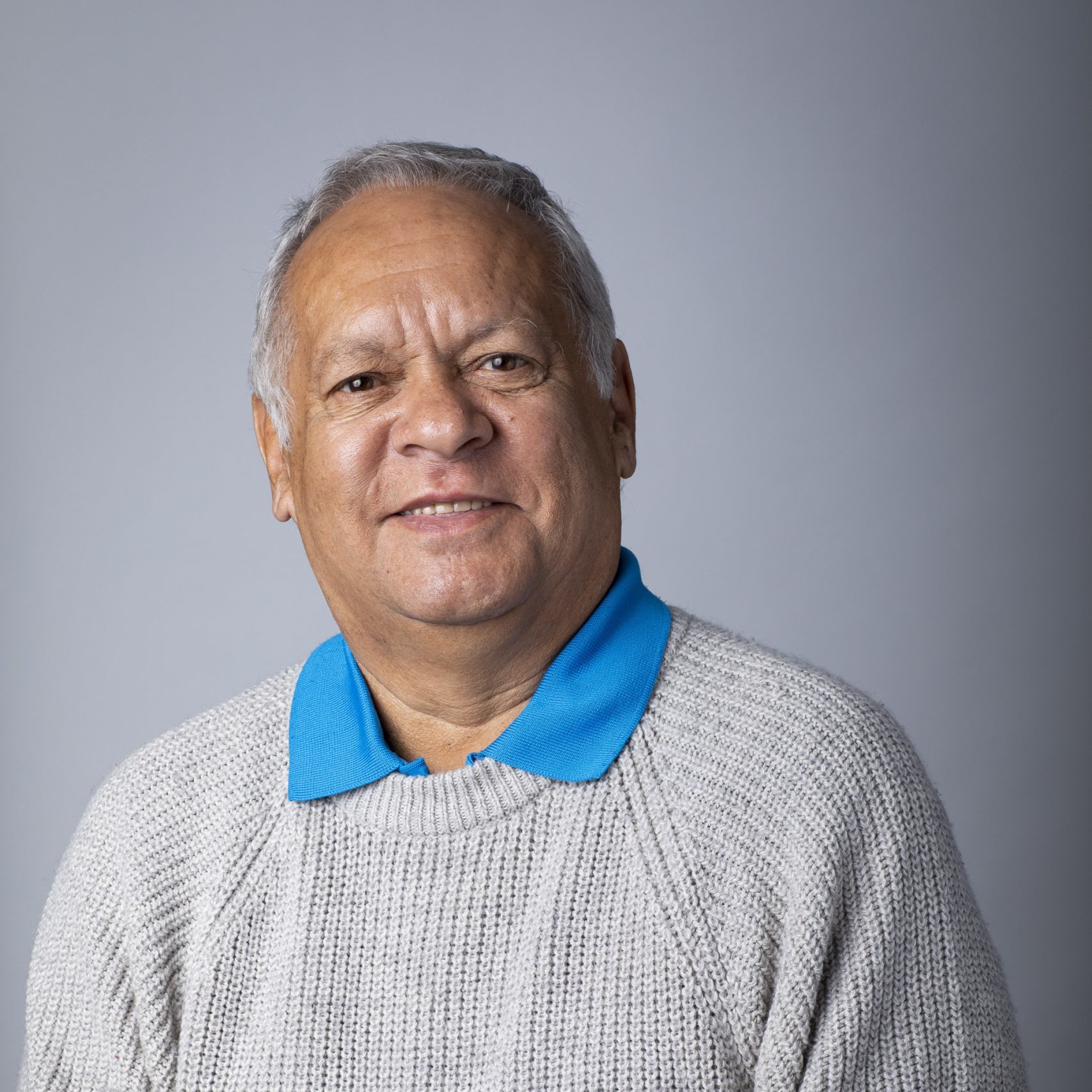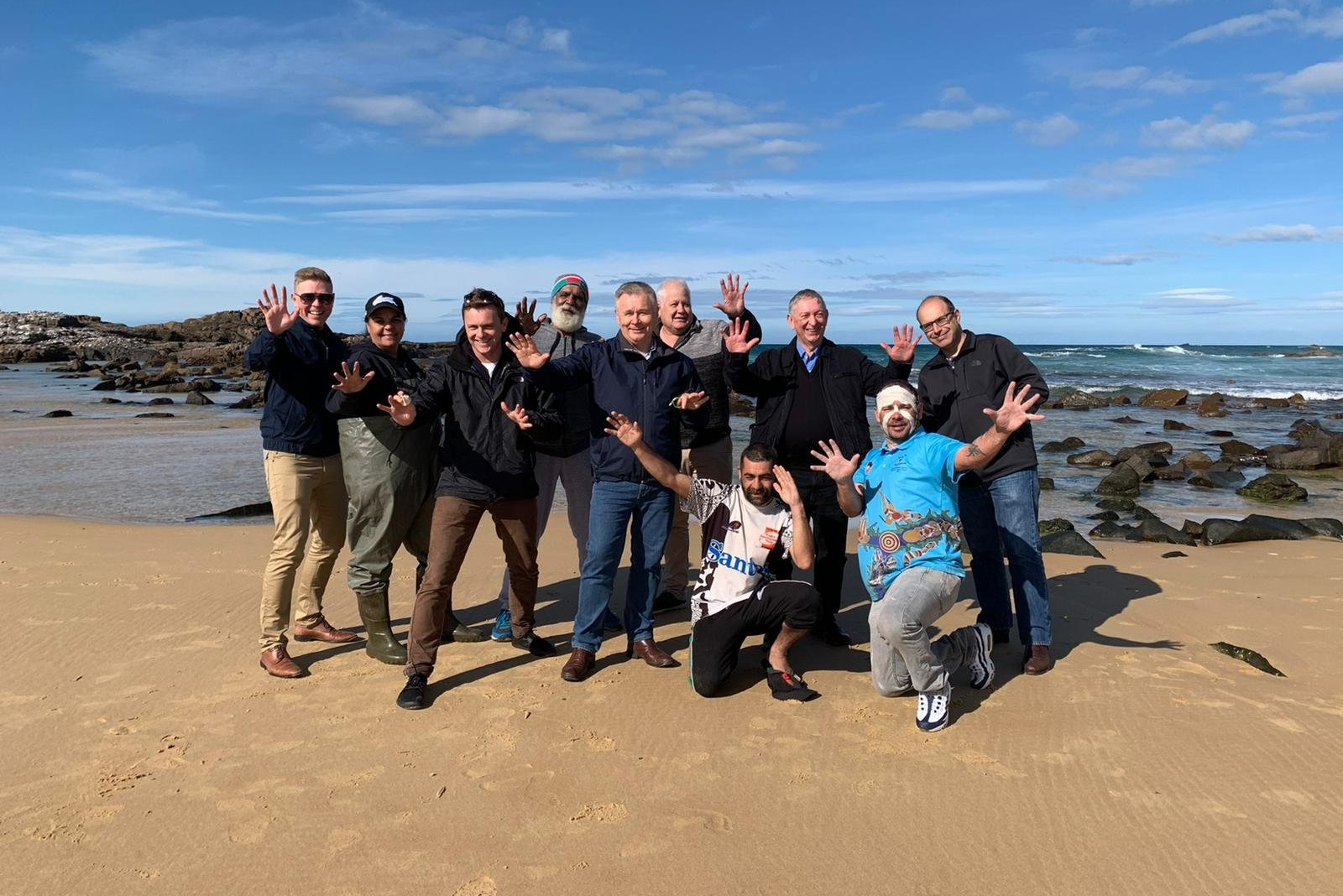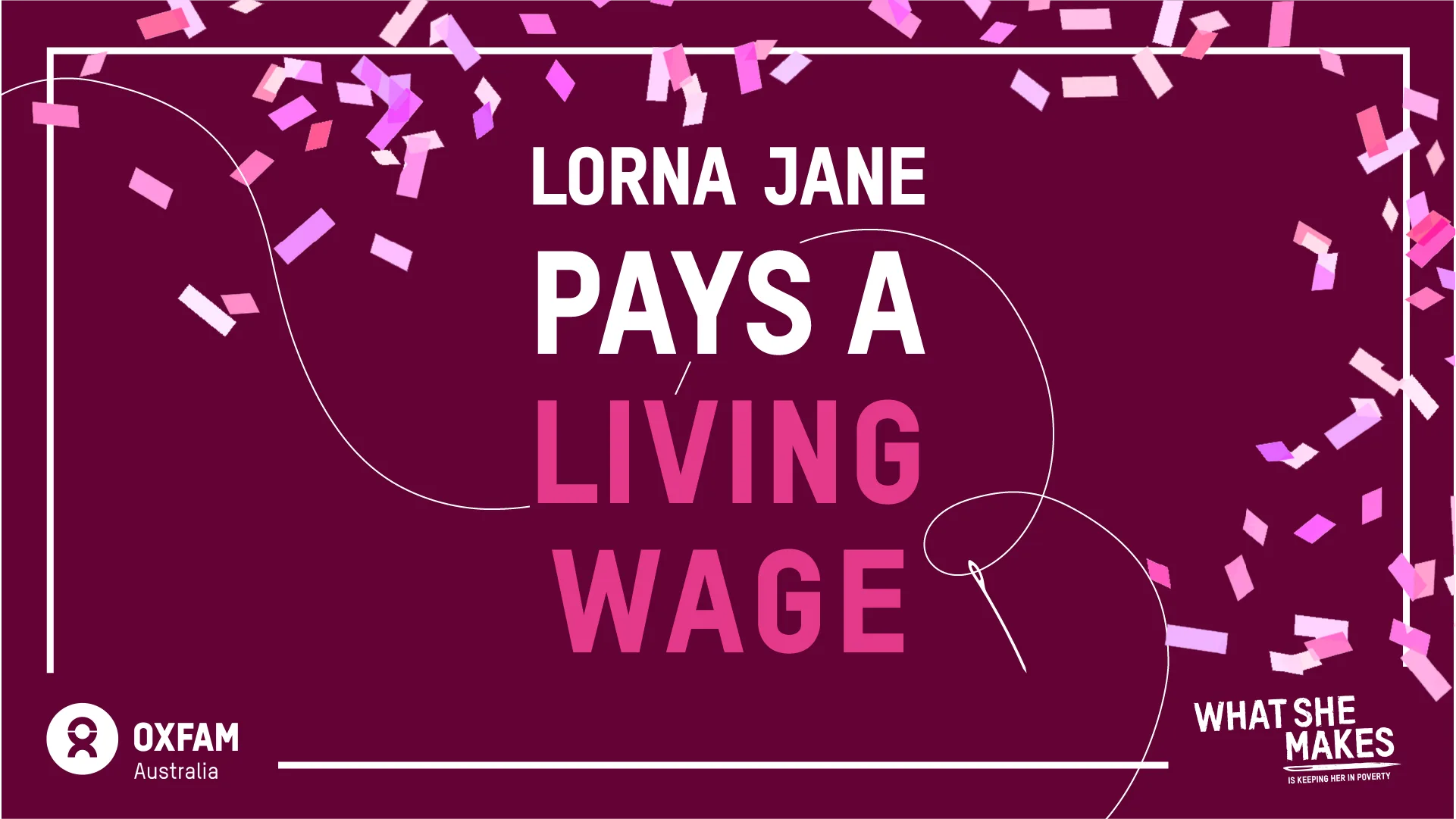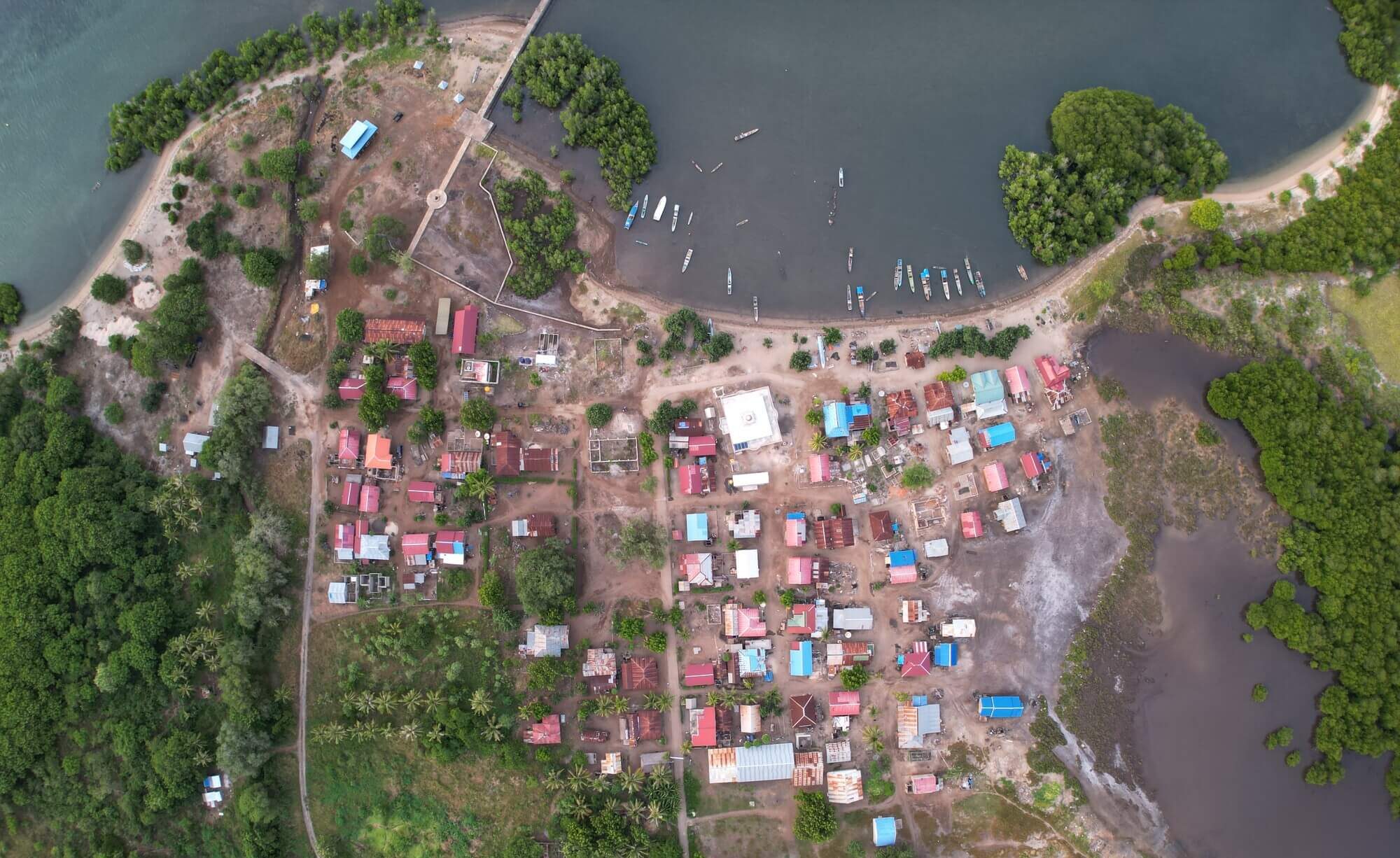Members of the NSW Parliamentary Inquiry into Cultural Fishing, together with Traditional Owners, at Mystery Bay, NSW, on the morning of the hearing in Narooma in July 2022
By Paul Cleary
Policy and Advocacy Lead
Powerful and confronting testimony has been given by South Coast Aboriginal people to a NSW parliamentary inquiry into cultural fishing, who have spelled out the immense cost to their communities from the refusal of successive governments to legislate these rights.
Oxfam Australia has been working with South Coast communities for the past four years as they seek to claim their rights and shake off decades of being targeted, harassed, fined, prosecuted and jailed for carrying out their ancient practices.
The NSW parliament passed an amendment in 2009 to allow for cultural fishing. Known as Section 21AA, the amendment has never entered into force. Now, a parliamentary committee is looking at the consequences of the failure to support these practices.
Kayeleen Brown, a South Coast women and chief executive of Katungul, an Aboriginal medical service operating in the region, told the inquiry that the poor health of South Coast people stemmed directly from the “inability to practice our culture in a world that treats us absent”.
Cultural fishing is a core foundation of health and wellbeing
Kayeleen Brown, CEO of Katungul medical service
“We have seen surging illness through our communities with unmatched chronic disease, co-morbidities, mental health, drug and alcohol and long-term disability impacts stemming from denial of access to staple traditional diets and ability to maintain cultural practices; all falling on the medical services to bridge the gap in what is a band-aid solution,” Ms Brown said.

The cost of extreme enforcement
Danny Chapman, a local Walbunja man and the chairman of the NSW Aboriginal Land Council, said the government and industry were responsible for the decline in key fishing stocks, and that Aboriginal people should not be blamed for over-harvesting. He pointed out that in the case of abalone, a highly valued shellfish, the industry had been allocated 100,000 kilograms a year while an Aboriginal man in his 70s, Kevin Mason, was prosecuted for being found with a 3kg bag of abalone.
“The people saying to you we can’t fit Aboriginal people in here because it is overallocated, and the resource is in decline. But they have done it,” Mr Chapman said.
Mr Chapman also recounted the impact of enforcement on his own family. His sons had been fined $25,000 at a young age and the fines affected their ability to secure a driver’s licence and a job.
The inquiry in Narooma heard evidence from eight Aboriginal people engaged in cultural and commercial fishing. They told how fisheries officers also seized their equipment, thus further denying them the right to carry out their tradition. Committee members from the NSW Legislative Council responded sympathetically to the evidence presented to them.
Oxfam has been extracting data from the NSW government to reveal the true weight of law enforcement bearing down on Traditional Owners. Data released by the Bureau of Crime Statistics and Research shows that since 2009, Aboriginal people account of 80 per cent of people jailed for fisheries offences, and around 60 per cent of people issued with jail terms that have been served in the community. Aboriginal people make up 3.5 per cent of the NSW population.
Data on charges for fisheries offences show that since 2009, 537 Aboriginal people have been charged with fisheries offences, and with 347 found guilty. But the data also shows the government has abandoned cases involving 173 individuals, indicating that the prosecutions are a form of harassment. And 70 of these abandoned cases took place in the 18 months to June 2021, indicating a heightened level of harassment activity.
A call for much needed change to cultural fishing legislation
In recent prosecutions, the NSW government has sought to make Aboriginal fishers pay costs.
Submissions to the inquiry by south coast people show extreme use of law enforcement has been deployed against them in coordinated activities involving Fisheries NSW officers and police officers.
A submission by Nick Glover told how tactical response forces with automatic weapons stopped him on the highway while he had a relative in the car who was pregnant and had a young child.
Oxfam’s submission to the inquiry called for the 2009 amendment to be introduced, along with a community-held licence which would operate within the commercial quota for various fisheries. It also called for the following positive changes:
- Require Fisheries NSW to train staff in native title rights and interests and international human rights of Aboriginal people
- Provide for equitable and culturally appropriate access for Aboriginal commercial fishers
- Require the Department of Primary Industries to involve Aboriginal people in all decision-making bodies that deal with fisheries management, including the resource assessment committees.
This has been a long term problem; learn more of Oxfam Australia’s efforts to support cultural fishing rights for First Peoples here. Find out more of what Oxfam Australia is doing for First People’s Justice.



